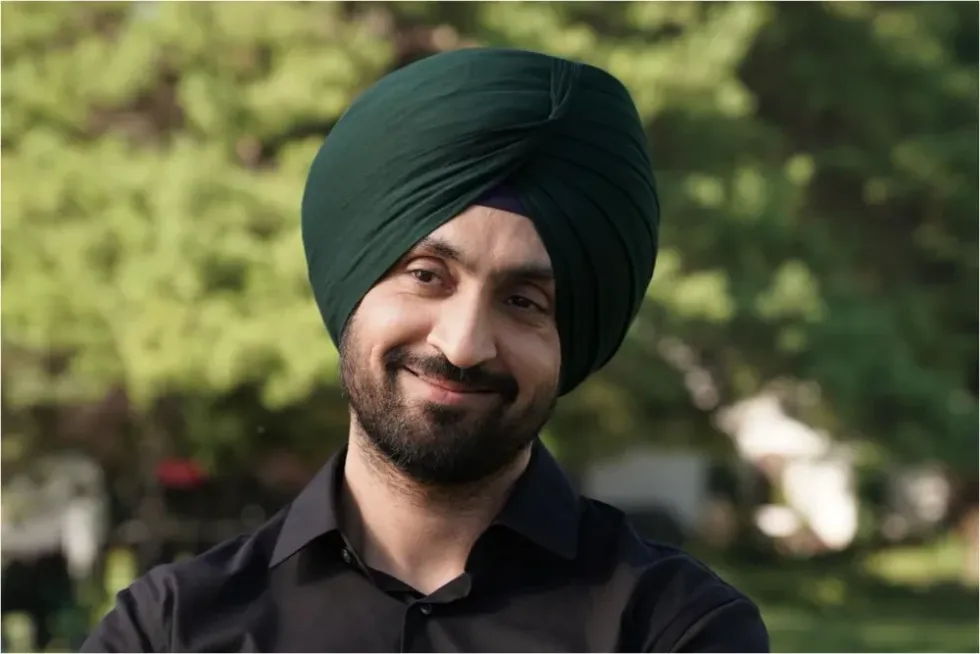by BARRY GARDINER MP
“THE tree does not deny its shade even to the one who comes to cut it down.”
Many Hindus know this verse from the Mahabharata (12.374). It is part of the teaching about hospitality and is set beside the instruction that even an enemy must be offered hospitality if he comes to your home.
How we treat others is at the heart of most faiths, but over the past week, the attitude to strangers and refugees has a particular significance for both Christians and Jews who have been celebrating their most holy times of the year.
The feast of Passover which began last Friday (19) commemorates the time when Jewish people were finally freed from two centuries of slavery in Egypt. What the Jewish faith learned from that bitter experience and has passed on from generation to generation is not about revenge, nor is it about suspicion of others – quite the contrary. It is: “Never exploit or oppress a stranger, but remember that you too were once a stranger in the land of Egypt” (Exodus 22.21).
Christianity’s central event is the Passion of Christ. We believe that Christ gave himself up to die on the cross to reconcile all people with God. He suffered the punishment due to all of us for our failure to love each other as we should. Christ summed up his teaching in a famous sermon where he told the crowds: “Bless those who curse you; do good to those who hate you and pray for those who persecute you.” The Jewish injunction not to oppress the other was turned into an active command to love your enemy and do them good.
People who feel they have been exploited or oppressed are naturally tempted to lash out at others. They often create scapegoats who may, in fact, have nothing to do with the wrongs they have received. What the great spiritual leaders of the world tell us is the lesson we should learn from our own pain is not to inflict pain upon others; if we want to create peace, we must turn our enemies into our friends.
The European Union was born out of the conflict of the Second World War. It was an attempt to turn enemies into friends, to create common interests in trade, medicine, education, security and even space exploration, where we can work together to improve our collective prosperity and wellbeing.
For a community to hold together, it is necessary for all its members to feel it works for them. That is why the EU has been one of the great redistributive endeavours of the past 60 years. The poorest parts of our continent, whether in southern Italy or Northern Ireland, have seen their poverty addressed, as the richer nations have helped them to develop. Inequalities that could have given rise to grievance and conflict have been levelled out. Potential enemies turned into partners, partners into friends.
We live in a time of division. The old divisions of party politics have been overshadowed by new divisions of identity, where the rights we think due to “our group” can lead to demands that are focused around self, rather than having an outward focus on the needs and aspirations of others. Free movement of people was felt by some, wrongly as it happens, to undermine their sense of what was due to them. It is a matter of sadness that in the UK, this has amplified a sense of nationalism and distorted what were often genuine dissatisfactions about the weaknesses in the way in which the EU operated.
Perhaps the greatest tragedy of Brexit though, is not just that we are turning our back on the stranger, the foreigner, the other. It is the way in which we are now turning our backs on each other; defining ourselves no longer as one community where we reach out in hospitality and care to each other, listening and respecting the differences that make us all unique. We have become a people looking not for solutions to shared problems but for excuses and others to blame.
Whichever side of the Brexit divide we use to define ourselves, perhaps this sacred time should enable us to pause, to reach out across the divide and engage with each other not in confrontation, but in the spirit of hospitality that lies at the heart of our spiritual heritage.
As I finish writing this, news is breaking of the terrible events in Sri Lanka with reports of 321 people murdered in churches and hotels. In a land so recently riven with civil war, it is significant that churches were the focus of the attack on Easter Sunday. The Easter message that love and hope will always triumph over death has never been more needed: in Britain, in Sri Lanka, and throughout our world.





 LONDON, ENGLAND - JUNE 22: Baroness Floella Benjamin speaks during the unveiling of the National Windrush Monument at Waterloo Station on June 22, 2022 in London, England. The photograph in the background is by Howard Grey. (Photo by John Sibley - WPA Pool/Getty Images)
LONDON, ENGLAND - JUNE 22: Baroness Floella Benjamin speaks during the unveiling of the National Windrush Monument at Waterloo Station on June 22, 2022 in London, England. The photograph in the background is by Howard Grey. (Photo by John Sibley - WPA Pool/Getty Images)









 Ed Sheeran and Arijit Singh
Ed Sheeran and Arijit Singh Aziz Ansari’s Hollywood comedy ‘Good Fortune’
Aziz Ansari’s Hollywood comedy ‘Good Fortune’ Punjabi cinema’s power-packed star cast returns in ‘Sarbala Ji’
Punjabi cinema’s power-packed star cast returns in ‘Sarbala Ji’ Mahira Khan
Mahira Khan ‘Housefull 5’ proves Bollywood is trolling its own audience
‘Housefull 5’ proves Bollywood is trolling its own audience Brilliant indie film ‘Chidiya’
Brilliant indie film ‘Chidiya’  John Abraham
John Abraham Hina Khan and her long-term partner Rocky Jaiswal
Hina Khan and her long-term partner Rocky Jaiswal  Shanaya Kapoor's troubled debut
Shanaya Kapoor's troubled debut Sana Yousuf
Sana Yousuf



 Shraddha Jain
Shraddha Jain Arundhati Roy
Arundhati Roy William Dalrymple and Onjali Q Rauf
William Dalrymple and Onjali Q Rauf Ravie Dubey and Sargun Mehta
Ravie Dubey and Sargun Mehta Money Back Guarantee
Money Back Guarantee Homebound
Homebound Guru Dutt in Chaudhvin Ka Chand
Guru Dutt in Chaudhvin Ka Chand Sarita Choudhury
Sarita Choudhury Detective Sherdi
Detective Sherdi